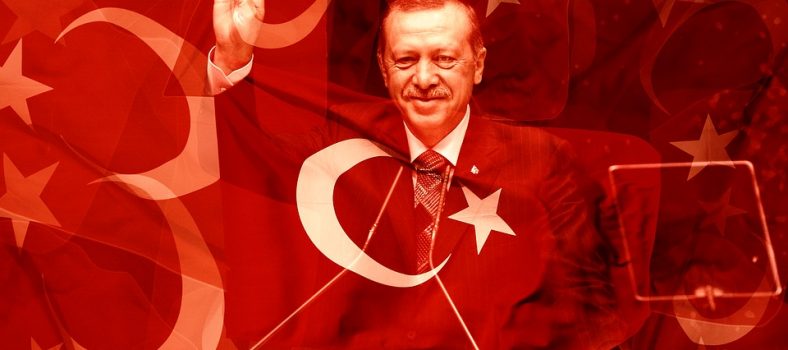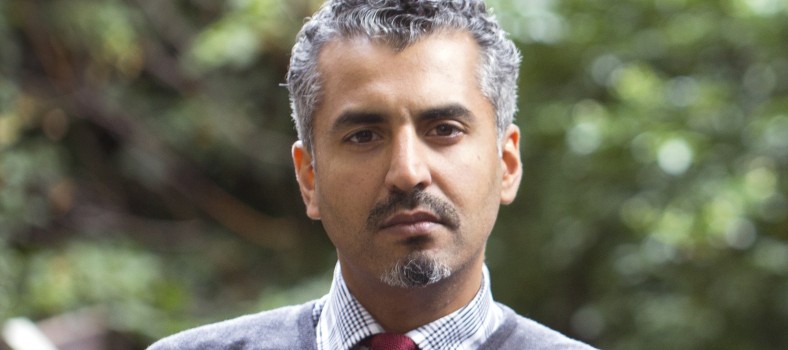Talking Across the Pond — How getting hung up on form and mechanics turns people into assholes.
This is not a post on parenting per se but I am discovering how any and every thing can be linked to the shrill cry – “but think of the children”. You will not, however, have to deal with an appeal to emotion or an illogical argument.
In a recent Facebook post–
The term “Proper English” is both offensive and just plain wrong. The beauty of English is that it is an adaptable and evolving language. We do not have a board that determines “correct” usage (as other languages like French do), and dictionaries of English are catalogs, not textbooks. English, like many languages, has distinct spoken dialects. The particular dialect chosen to represent the elite may become the most commonly spoken, but it is technically no more or less “proper” English than other dialects of this living, spoken, language and to suggest otherwise is ignorant and elitist, no matter what pretty high-blown language you express it in. — feeling annoyed.
This came as a response to the following —
There is no such thing as an “Arab-American”, “Pakistani-American”, “Jewish-American” or “African-American” language etc, these are dialects and you will observe that the more integrated and educated the the (sic) person is the more he/she knows how to spell and pronounce English correctly.
Great three examples of African Americans who speak English perfectly and that I look up to
Neil Degrasse Tyson (scientist)
Barack Obama (politician)
Thomas Sowell (Economist and social theorist)
It’s not ‘racist’ to demand whether they were born here in the U.S or immigrants to know English.
Canada does it, Australia does it, New Zealand does it, all these 3 great new world countries have official languages.
And actually it has nothing to do with race or culture, there are many uneducated whites who do not speak English well.
Let’s not be too politically correct for goodness’ sake.
The person who posted this status received a lot of online attention. Sometimes social media sites transcend the mundane and become arenas for meaningful discourse. What was interesting about this thread was not that a person would present his thinly veiled racial prejudice dressed in the rhetoric of practicality. Is was surprising how many people backed him up and attempted to flame opposing points of view by repeating the uncompromising necessity for doing something the ‘right’ way.
Before addressing this sort of rigid opposition to every form of discourse other than what is considered the standard, let me introduce the notion of the ‘contact zone’. They are social spaces “where cultures meet, clash, and grapple with each other, often in contexts of highly asymmetrical relations of power, such as colonialism, slavery, or their aftermaths as they are lived out in many parts of the world today.” Vernacular expression, which is being denigrated and dismissed in our Facebook status, is one of the literary arts of the contact zone among parody, denunciation, bilingualism, etc. Mary Louise Pratt, who named and investigates these social spaces that allow the intermingling of two or more cultures had this to say about the artistic expressions that arise from it — “they all live among us today in the transnationalized metropolis of the United States and are becoming more widely visible, more pressing, and … more decipherable to those who once would have ignored them in defense of a stable, centered sense of knowledge and reality.”
Perhaps the desire to silence the literary arts of the contact zone lies in the reluctance to receive oppositional points of view directed toward positions of authority. Much of the failure in educating African American youth is chalked up to their resistance in acquiring literacy skills that are regarded in their community as instruments of deculturation without true assimilation. Unlike other minorities, for whom participating in oppositional discourse can be a conscious choice, the “oppositional identity, growing from the specific history of slavery, Jim Crow segregation, and institutional racism, is what differentiates African Americans from other minorities”(Tom Fox, California State University). When the oppositional identity becomes an intrinsic part of one’s being, how does one negotiate spaces where conformity and assimilation is the order of the day?
Resistance to including differing dialects into “standard” communication is often a reaction against the incoherence, miscomprehension, and sometimes vulgarity present in the discourses comprising the contact zone. I am from a southern state in India and my community, which has historically been an underclass, speaks a hybrid Urdu. Compared to the refined Urdu of the northern states, ours is what some may call ‘ghetto’. Because our state runs along the Western Ghats, the faulted edge of the Deccan Plateau, the dialect is called Ghati Urdu among its users as a way to distinguish between the more polite Hyderabadi Urdu or the courtly Urdu of Lucknow. Ghati Urdu is a mix of Urdu, Kannada and who knows what else ( I heard my Afghan friend use a Ghati word and turns out ‘wanti’ means “all alone” to Pushto speakers as well). But more importantly, it is the dialect of an under represented under-class. No one from my father’s then village, now a bustling college town, was invited to speak in local universities or to represent the interest of the Ghati Urdu speaking minority in local elections. Nor is their a strong desire to preserve Ghati Urdu in all of its corrupt glory; the speakers of the language do not hold the catastrophic communal upheavals and political persecutions of the North as part of their history. At the time of the Partition,when the muslims in the north were debating whether they should cross the river of blood into Pakistan, the Ghati Urdu speakers among other Southern muslims dug in their heels and embraced familiar miseries and lack of opportunities. This collective act of what could be seen as solidarity or loyalty did not, however, lead to acceptance or assimilation. Not being officially recognized as a discrete or separate group by the immediately larger community that one belongs to seems to happen often enough. My recognition of all things Ghati only happened here in the US. I recognize that Ghati Urdu is limiting; I cannot think critically or argue a complex point in it. I am not aware of any poems in Ghati Urdu. What I do know is that taking high poetry and corrupting it with the injection of Ghati Urdu is so commonplace that it has ceased to be clever. For example, a song on good travels —
Kawn hasta hai phoolon me chip kar…(who hides and laughs among the flowers) is changed to —
Kawn hagta hai phoolon me chip kar…( who hides and defecates among the flowers).
There is a profusion of poetry on the higher aspirations and sensibilities of people in Urdu. The only poetry I can imagine being framed in Ghati Urdu would at best be rhymes about hooking up, pranking someone or getting robbed — in short, the human condition after cynicism and apathy have set in. It is a strange sort of tabula rasa where only the crude and simple exist. Because I belong to both discourse communities, a few lines of Faiz Ahmed Faiz can leave me breathless and the subverted versions of all things wholesome, like shown above, brings on the kind of belly laugh that can only be construed as mean-spirited. My inability to perform higher-order mental activity in Ghati Urdu does not mean that someone from the Ghati ghetto could not lead a revolutionary movement. Perhaps, following a Freirean education model of dialogue-driven development of concepts could take Ghati Urdu speakers from literacy to critical consciousness. Perhaps a collective project for the common good would enoble Ghati Urdu from where it now languishes. We can never know the impact of a discourse community until it is granted entrance into the contact zone. Similarly, a discourse community can be wholly unmindful of its own dynamic powers until it has to call upon its resources in confronting the appraisal and opposition endemic to the contact zone.
The oral history of African American people, which resonates in the artistic expression of Black culture to the present time, includes rhyming, word play and semantic inversion. Dozens and trash-talk, ingenious ways of insulting a person, are also part of this rich oral tradition that have grown and enriched modern popular culture. The good, the bad and the ugly are laid bare when discourse communities engage with one another. Hip Hop originates from the marginalized subculture of the South Bronx and constitutes a broad array of the artistic expressions of Black and Latino youth. Even though these art forms contrast and clash, they have a common association with the violence and poverty that give them a shared historical context. Spoken word, coming out of the Harlem Renaissance and now a popular form of poetic expression in college campuses everywhere, employs the technique of movement, rhythm and audience participation in much the same way as when black people during slavery found entertainment in two contestants exchanging yo’ mama snaps.
Engaging with others in the contact zone can be hugely transformative; black discourse communities have been empowered and in return have enriched human understanding. What remains key is communication and the desire to hear one another. There is something far greater at stake than the possible negligence of academic standards of communication. When the character from Kathryn Stockett’s The Help tells a neglected child “You is kind. You is smart. You is important,” one would hope that the audience is moved more by the human sentiments behind the words rather than human error.
One’s identity is rarely characterized by a single, discrete, discourse community but more by a series of overlapping, indistinct, and possibly contradictory ones. Instead of endeavoring to “fix” the use of language, the goal should be to complicate it. People should not have to inhabit the specifications of any one form and method of discourse in order to be heard and accepted. Training one’s self to accept and comprehend differing discourses encourages a hesitant and tenuous relationship with language. Confrontation, while important to the contact zone, must be tempered with cooperation which remains the bedrock for change and reform. Extending acceptance and recognition to the literary arts of the contact zone is among the first demonstrations of cooperation.
The 1613 work of the colonized Andean, Guaman Poma, is a twelve hundred page letter addressed to King Phillip III in an ungrammatical and expressive Spanish mixed in with Quecha. It is a haunting reminder of what gets lost when voices are marginalized. The manuscript holds concrete collaborations between people, specifically, the use of a conqueror’s language by a conquered subject to construct a parodic and oppositional representation of the conqueror’s own speech. Guaman Poma’s work disappeared until 1912 when after its accidental discovery in Copenhagen, a paper was written and presented in London. It was much later still before Western scholars found ways to access the text and celebrate it as “the extraordinary intercultural tour de force that it was” (Pratt). But this happened 350 years later, ages after the time and miles away from the place the author had hoped to impact. A fixation on form and rule can be interpreted as one more strategy in the turning away from the metaphoric extended hand.




